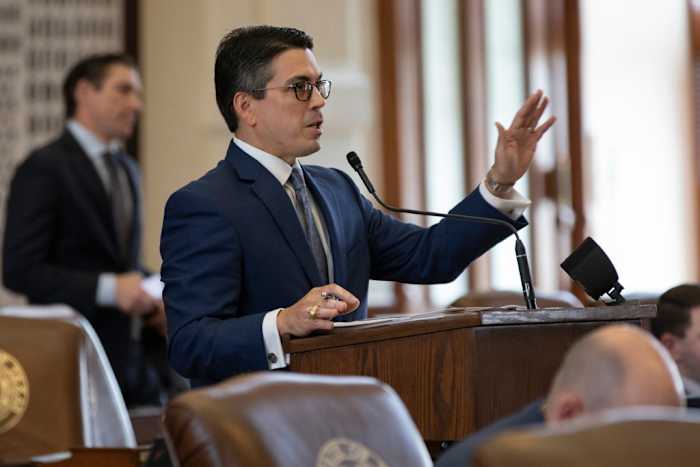UPDATE: Former state Representative Chris Paddie has been fined $105,500 for breaching Texas’ revolving door lobbying law, an urgent ruling issued by the Texas Ethics Commission reveals. The decision, announced last week, highlights significant violations that could reshape the future for former lawmakers transitioning into lobbying roles.
The fine stems from Paddie’s actions while serving as a Republican lawmaker from Marshall, Texas. Following his decision not to seek reelection in 2021, Paddie contributed $54,000 to various House representatives and candidates in late 2021. He registered as a lobbyist in May 2022, a move that drew scrutiny due to the state law, passed in 2019, which prohibits former officials from registering as lobbyists if they have made donations to officeholders within two years before their registration.
According to the ethics commission’s order, Paddie’s large donations indicate a clear attempt to influence legislative decisions prior to his retirement. “This suggests intent to cultivate or maintain influence with the Legislature in advance of his retirement, which is what the statute was intended to prohibit,” the ruling stated.
In a twist, Paddie unregistered just one week after his initial registration amid media scrutiny but quickly reregistered later that year. He then funneled $55,500 back into his campaign account using personal funds to offset his previous contributions—a tactic viewed as exploiting a loophole in the law. In February 2023, the ethics commission clarified that using personal funds does not remedy a prior violation, prompting Paddie to unregister once more.
The commission’s findings also revealed that Paddie accepted over $900,000 from lobbying clients with whom he had contracts between April 2022 and January 2024. The hefty fine reflects the commission’s view on the willful nature of his violations and the necessity to deter future infractions.
Payment of the fine is required within 30 days from the issuance date. Notably, Paddie was involved in coauthoring House Bill 2677, the very legislation he violated, underscoring a troubling irony in his case.
The implications of this ruling extend beyond Paddie, as it may set a precedent for how former lawmakers navigate the complex landscape of lobbying. As this situation develops, all eyes will be on Texas lawmakers and how they address potential loopholes in lobbying regulations to preserve public trust.







